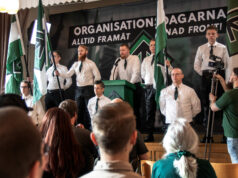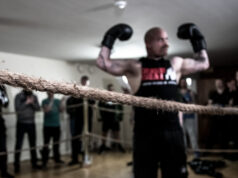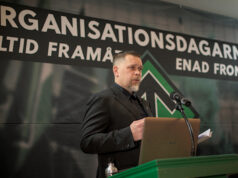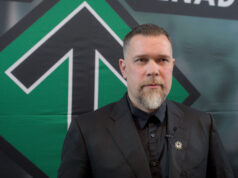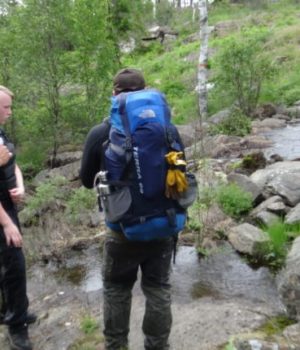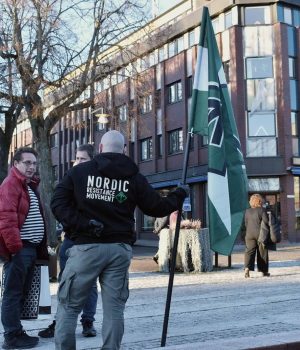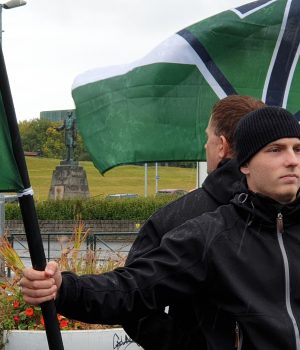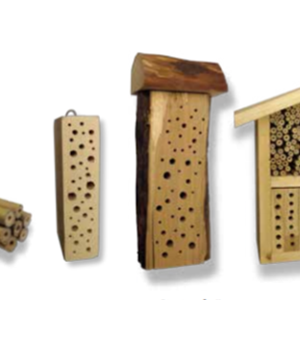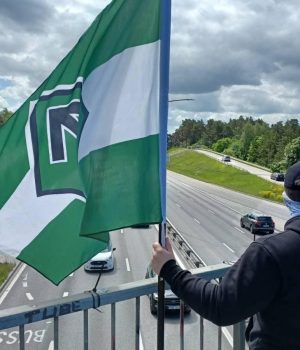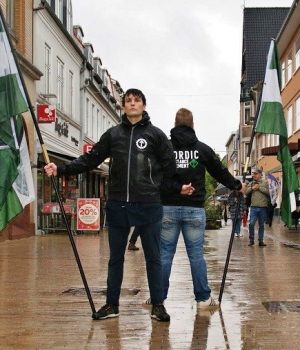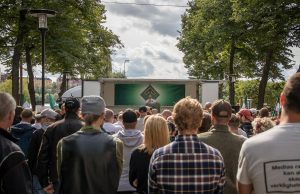INTERVIEW. Anette, a member of the Nordic Resistance Movement’s Nest 5 in Sweden, has interviewed Vera Oredsson and Paulina Forslund about the role of women (and particularly the role of mothers) in the struggle. Here’s the interview with Vera.
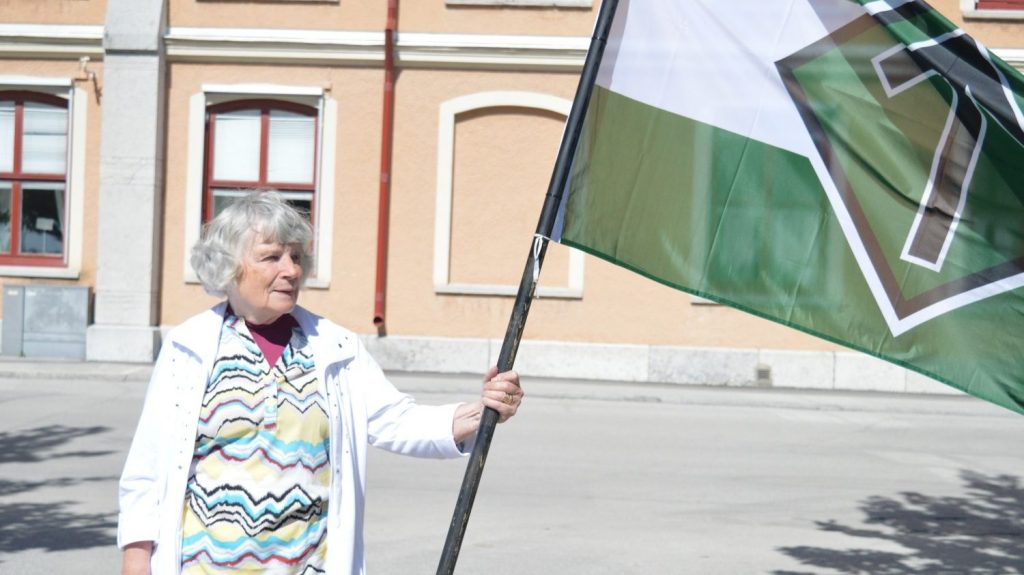
As there are more male members than female in our organisation, and because the women tend to become less active after they’ve had children, I’ve chosen to interview Vera Oredsson, a woman who has many years of activism to her name, as well as being a mother. Below is the written interview.
What do you think a woman’s role is in the struggle?
The female struggle is not really all that different from the male struggle. Yes, we might not fight in the streets and such. In those kinds of situations, we mostly stand in the background and step in if it’s really needed. Apart from that, women can do most of the things men do.
What is a mother’s role in the struggle, and how do you think a woman’s role changes when she has children?
Naturally it changes in regard to preventing you from being as outwardly active as before, since you end up becoming more attached to your home. The needs of the children always come first. However, I’m not saying that their needs should always come first once they’ve become adults. You have to be open with your children and let them take part in what’s going on. I’ve been completely open, and my children were involved in internal activities when it was allowed.
You should not disregard your children and be of the opinion that they can’t take part. On the contrary, it’s good if they can take part and see that we’re surrounded by ordinary and pleasant people. It will prevent them from having preconceived ideas about us later in life. If you keep your children out of the struggle completely (as many do), they will wonder what mommy and daddy are up to and might instead listen to strange ideas they’ve heard in school or somewhere else. Once they have gotten to meet normal, pleasant and humorous comrades, their attitudes to the struggle will be much more natural. Thus my point is that you should not keep your home separated from the struggle too much.
Being a mother, you could easily end up becoming jealous of women who don’t have children, since they can take part in the struggle more often. But then you simply have to be assigned a different role in the struggle. National Socialism must be involved in the home. I’m not saying you should brainwash your children and force them into it, because you absolutely shouldn’t. You should go about it in a natural way, since National Socialism is meant to be completely natural.
How did your contribution to the struggle change when you became a mother?
I naturally became more attached to my home and couldn’t take part in as many external activities as before. Instead I simply adjusted my duties and was responsible for answering the party telephone, writing articles and so on. My being a mother didn’t really hinder my work for the struggle all that much; it simply led me to adjust and alter my obligations. We also made sure that more meetings and gatherings took place in our home so that I would also be able to take part.
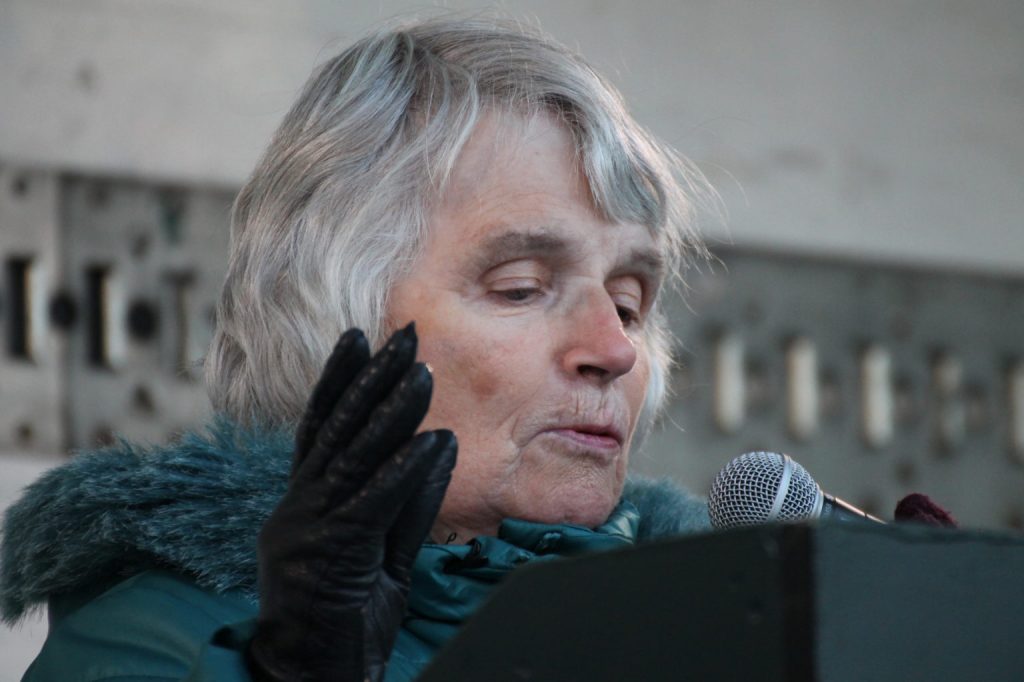
Can men help women be revolutionary and active mothers?
Absolutely, the man has to help. This was something I was so despondent about in the Nordic Realm Party in my time – the fact that men didn’t bring their wives along to our meetings, which naturally led to schisms later on. Wives have to be involved too. National Socialism should not be overly concerned with the home, but it should be part of the home. Look at Pär Öberg’s family or the families of many other comrades – they are as happy as can be.
Something I’ve noticed as time has passed is that, when the woman decides that her husband is not allowed to take part in the struggle, he only has himself to blame. That’s because he didn’t get her involved in the struggle. If the woman doesn’t want to listen, the man simply has to say, “Now you will listen to me” and bang his fist on the table. No dithering. It’s disconcerting that fighting men fall in line too much with the desires of their women. If the men are National Socialists at heart, they will push through and not fall in line with their women. You don’t need to have exactly the same opinions (not even National Socialists are 100% in agreement about everything), but you need to be able to discuss and show respect for each another.
Is it possible for the organization and the comrades around you to help mothers remain active National Socialists?
Help can definitely be offered in times of distress – helping a comrade is a no-brainer. When you’re at a gathering, you take turns in looking after the younger children. If you’re at a lecture that you really want to hear, somebody less interested in the lecture can take care of the children, and so on.
What was the role of the National Socialist woman in Germany before the NSDAP came to power?
Most women had to look for a job because their men became unemployed. A lot of the younger women handed out leaflets and spread propaganda, but it was quite dangerous work, since the communists were a lot more numerous then and much more militant compared to today.
What a boost it was for German women after the party came to power! The men were given employment, and women could choose to stay at home again. The German housewife was elevated. A housewife was on par with a worker, and she had just as much right to a pension as a worker did. She had rightfully earned that since she had taken care of her husband and the next generation. Mothers with many children were helped in all sorts of ways when they were at home. It was a different kind of state order, one that might be hard to relate to today since women have become so “independent”. I do however believe that, given the option, many mothers would prefer to stay at home with their children. And especially if they were getting the support and encouragement they needed and not having to worry about economic matters.
What was the role of women during the war years and at the end of the war in particular?
The situation was of course very different. Women were needed in the orphanages, day care centres and the armaments industry. They had to help farmers in the countryside since the men had been conscripted. The women took care of all the work at home and made contributions to the struggle that didn’t involve weapons.
I myself joined in the digging of trenches and pitfalls, and contributed to the struggle in that way. I was young and perhaps I didn’t understand the gravity of the situation, but I just thought it was fun and I wasn’t in the least bit scared. In the morning when we were marching off, we carried polished shovels on our backs, almost like soldiers. Towards the end, we also had burial duties before we were forced to flee from the Soviet army. I hope our contributions to the struggle made some difference.
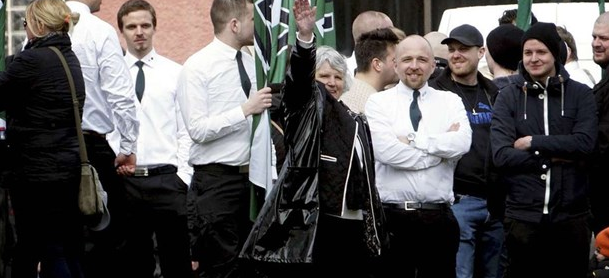
Do you have any closing words for our readers?
The struggle continues in the home when you’ve had children. Having a child is obviously no reason to quit the National Socialist struggle – that is out of the question. It just becomes another sort of struggle. Now we have the internet and mothers are able to do as much as they want. Mothers could also spend time with their children and get them involved in National Socialism at home.
Related: Mothers in the struggle (part 1 of 2) – Paulina Forslund





